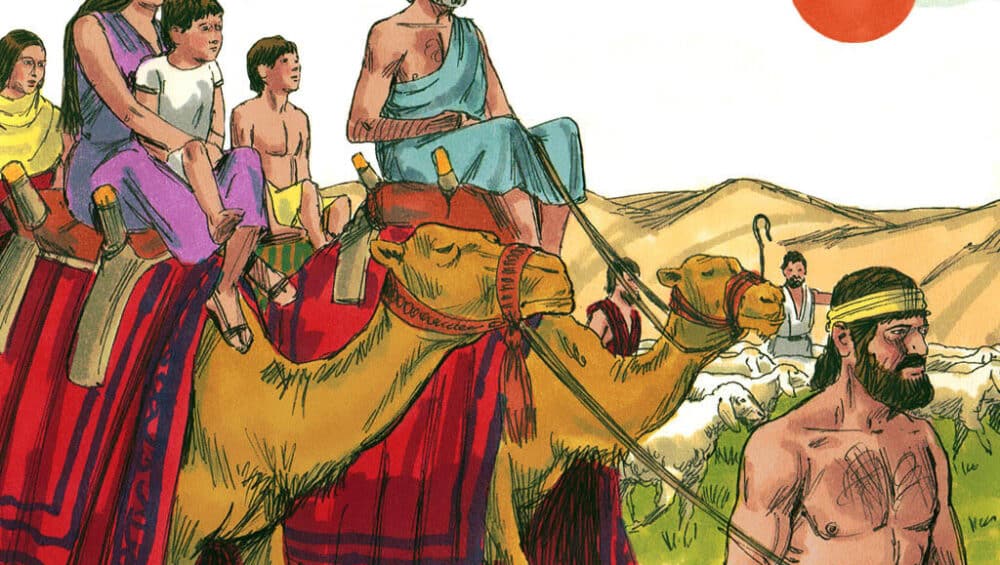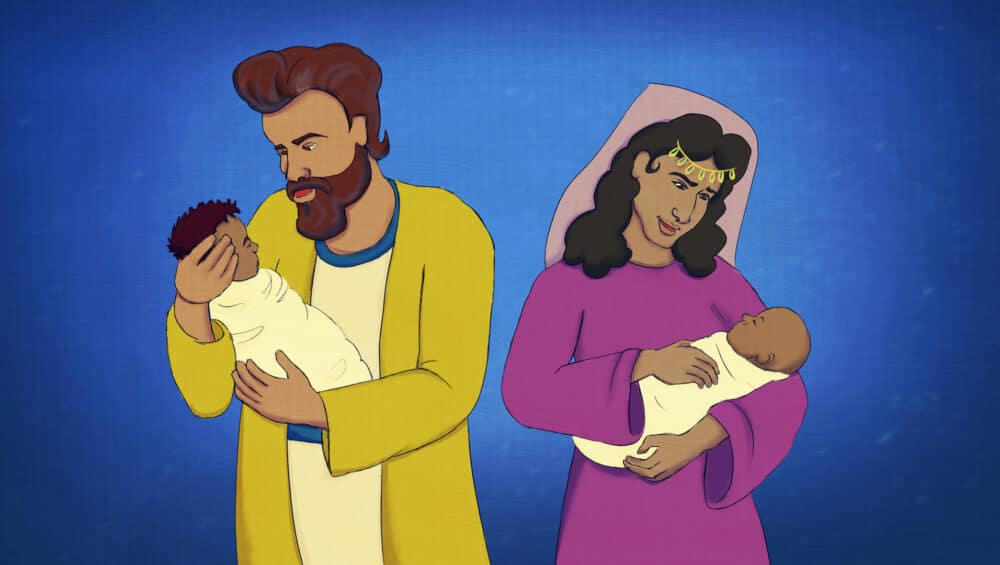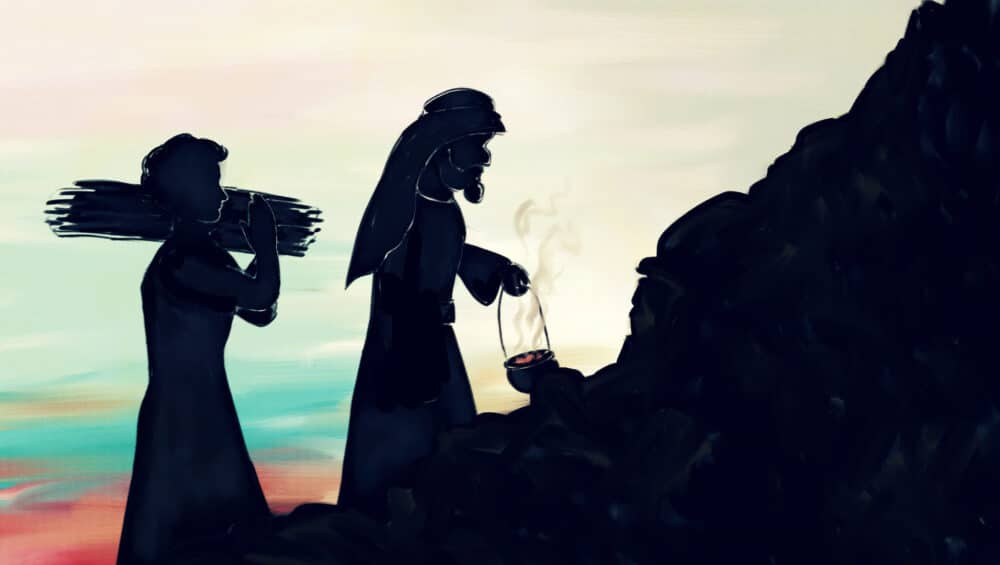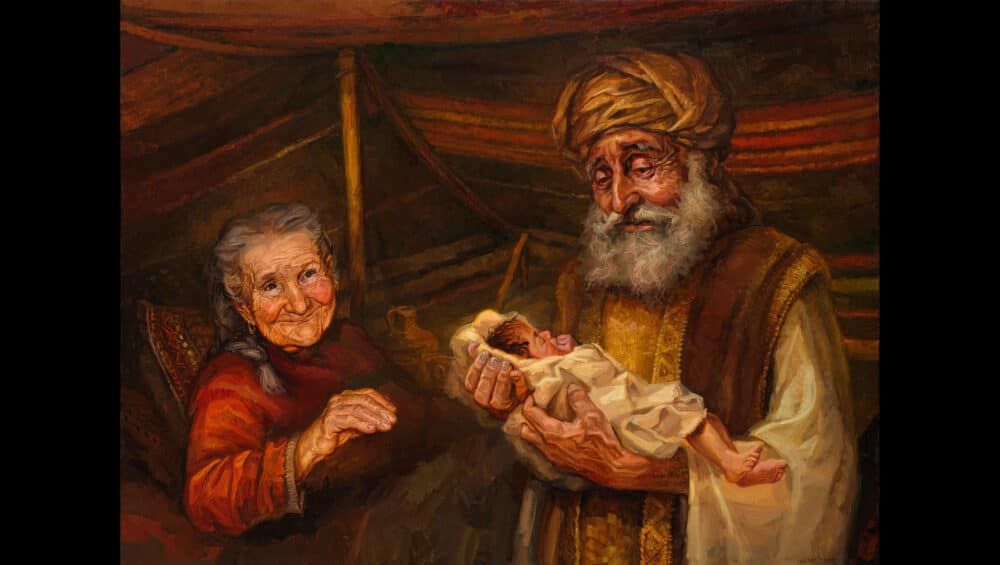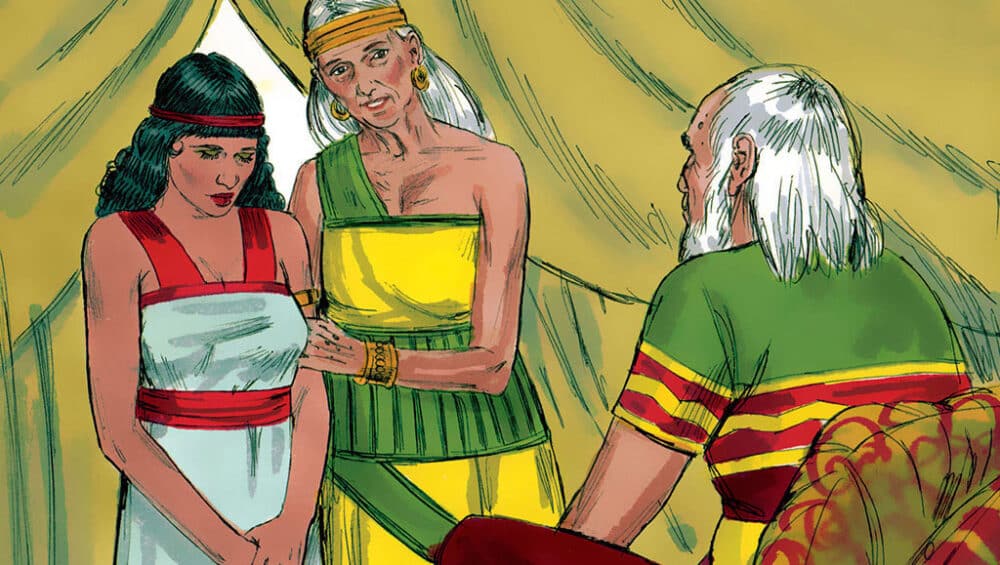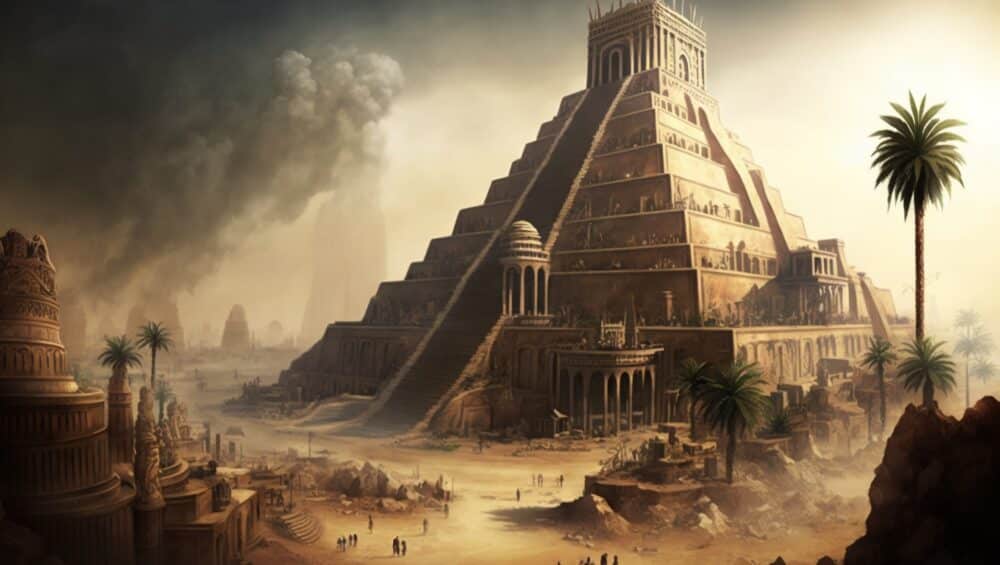Sweet Publishing / FreeBibleimages.org
Welcome to Livin’ Light’s Bible-In-A-Year challenge of discovering God’s love for us and His purpose for our lives. Here is the format for this great adventure: The daily reading assignment is posted at 5 a.m. After each day’s reading, Leigh An Coplin, the blog host, shares observations and poses questions about difficult passages to Rob Fields, who studied Christian Education at Asbury Seminary and currently teaches Biology in the Orlando area. To start from the beginning, click on 365 Bible Readings and scroll down to Day 1. The reading schedule is taken from The One Year Chronological Bible NLT.
Today’s Reading
— Genesis 30:25-31:55
(1916-1908 BC) Click here for a timeline of the whole Bible.
Questions & Observations
O. (30:30): Jacob gets it. Remember how God told Abraham that He was his protector? Here, Jacob is telling Laban that God has blessed Laban with good fortune, all through the hard work of Jacob. Jacob gives the glory to God. In Gen. 15:1, God tells Abram (Abraham) that He will protect him and “your reward will be great.” Look at this story where Laban deceives Jacob again, yet God is with Jacob and helps him succeed — his reward.
O. (30:35): I just realized that Rebekah deceived her husband, the nearly blind Isaac, into thinking Jacob was Esau, resulting in Esau losing his blessing. Here, Rebekah’s brother, Laban, tricks Jacob by taking the speckled goats and the black sheep. Deception must run in their family. Jacob is related too. He seems to be the ultimate outwitter, (31:20) but has learned to use his gift wisely with the God’s guidance.
O. (31:3): God keeps His promises. In Gen. 28:15, God said He would be with Jacob. In 28:21, Jacob says that if God returns him safely to his father’s home, He will be his God. Jacob and God have built a strong trust, like God did with his father Isaac and his grandfather Abraham. The legacy has been established.
O. (31:12): Jacob has basically been a slave to Laban, but God was watching how poorly Laban treated him. We can apply this to our own lives. When you don’t understand why you are going through a difficult time, God is paying attention. And if you stay loyal to Him, He will reward you.
Q. (31:19): Why did Rachel take the idols from Laban’s house?
A. There’s a few theories since the story doesn’t explicitly tell us. One of the theories is that Rachel is getting back at her dad for mistreating her, which the text seems to support by saying that they felt their father denied them an inheritance. Another theory is that she didn’t want her father to continue in idolatry (which I confess I don’t see much support for). One other idea is that she didn’t believe in Jacob’s god, and was trying to steal the source of her father’s power and influence.
Q. (31:26): OK, what’s up with Laban? He is so two-faced, he almost seems schizophrenic. He is horribly unfair to Jacob and then asked Jacob why He snuck away. He bargained away his daughters, then asked why Jacob dragged his daughters away like prisoners of war. In 31:43, Laban is still delusional. He thinks the flocks are his even after Jacob explained that the flocks grew because God blessed him. Then in 31:48, when he makes a covenant with Jacob, he says God will be the witness if Jacob mistreats his daughters. How can he say this when he is the ultimate abuser? And, does he think God will truly respect him, given his treatment of Jacob and worshipping other gods?
A. I think you’ve summed it up well. Laban is an odd character and this is a very weird story. I honestly don’t know a lot about Laban and his motivations (he’s not a well studied character). One thing he does do, whether he believes in the God of Jacob or not, is call this god as a witness in the covenant between himself and Jacob. In addition to the aspects of covenant ceremony we have already discussed, another important aspect would be witnesses to the ceremony itself, who would have been responsible for its enforcement. So what Laban is wisely doing here is calling on Jacob’s God to keep Jacob honest.
Q. (31:36): This is the first time that I can remember that one of God’s chosen has lashed out at someone. Most of the stories so far show how God’s power settles an argument. Disagreements always make me question if I am supposed to speak up or let God do my fighting for me.
A. As we discussed yesterday, it is our duty as Christians to be at peace with those around us, so resorting to this type of outburst (or even to violence) is not in keeping with the heart of the Christian message. But we must, reasonably, be willing to speak up for God when we feel that the character of God is being challenged. Ultimately, I believe that we are called to listen for the guidance of the Holy Spirit and be wise when it comes to the times to speak (or yell I guess) and the times to be silent.
Q. (31:39): I know many of the Bible’s characters stories foreshadow our Savior, Jesus Christ. When Jacob said He owned the responsibility for Laban’s sheep: If one was missing, from no fault of Jacob, Jacob would have to pay for it. Is this foreshadowing Jesus taking the punishment for our sins?
A. Certainly Jacob’s role as shepherd and protector of the sheep is in keeping with our understanding of the way Jesus spoke about himself as Good Shepherd (John 10). And while I am not especially familiar with this particular instance of foreshadowing, you could certainly make the argument that Jacob’s actions symbolically match the way that Jesus took the “payment” for those that he considered His sheep.
O. I joined Bible Study Fellowship (there are groups all over the nation and in many other countries) this week, which is a great study! The speaker talked about false promises and how we set our kids up for false hope. God tells absolutes like, “you will be the father of many nations,” “I’ll be with you,” and that He’ll give them a certain land. God doesn’t’ say, “if we have time,” or “if we can afford it” or “we’ll have to wait and see.” Telling kids something may or may not happen, gives them something to hope for. Of course, I’m the master of saying “we’ll have to see.” I always thought that was a great response to the many requests of young children. I tested this new way of answering my daughter when she asked to get a pedicure with me. Instead of telling her, “we need to watch our money” or something valid like that, I told her that we definitely would do it. I don’t know when, but I know we will get a pedicure together again in the near future. Instead of hanging her head from a vague answer, she held her head up and smiled.
Book recommendation: Speaking of children, I bought my daughter a devotional book for Christmas, 365 Bedtime Devos for Little Girls. It has a one-page reading every day. It is fabulous. It opens up conversation. One “virtue” is presented, then you can tell about how that virtue has applied to your life. Then she offers up and creates a scenario for the virtue also. It is a real conversation starter. (Update: unfortunately, this book is out of print. I did see it on ebay. However, there are numerous other devotional books with which you can engage your child practicing virtues.
For further study
— Check out this list of covenants of the Bible: https://www.gcu.edu/blog/theology-ministry/theology-thursday-what-are-biblical-covenants
— God’s role in supporting Jacob in the midst of Laban’s deception: https://www.bibletools.org/index.cfm/fuseaction/Topical.show/RTD/cgg/ID/19697/Labans-Deception-Jacob.htm
Shop: Life is hard, but if you follow God, your cup will overflow with joy! https://livinlight.org/product/overflow-t-shirt-2/
Tomorrow’s reading: Genesis 32:1-35:27

